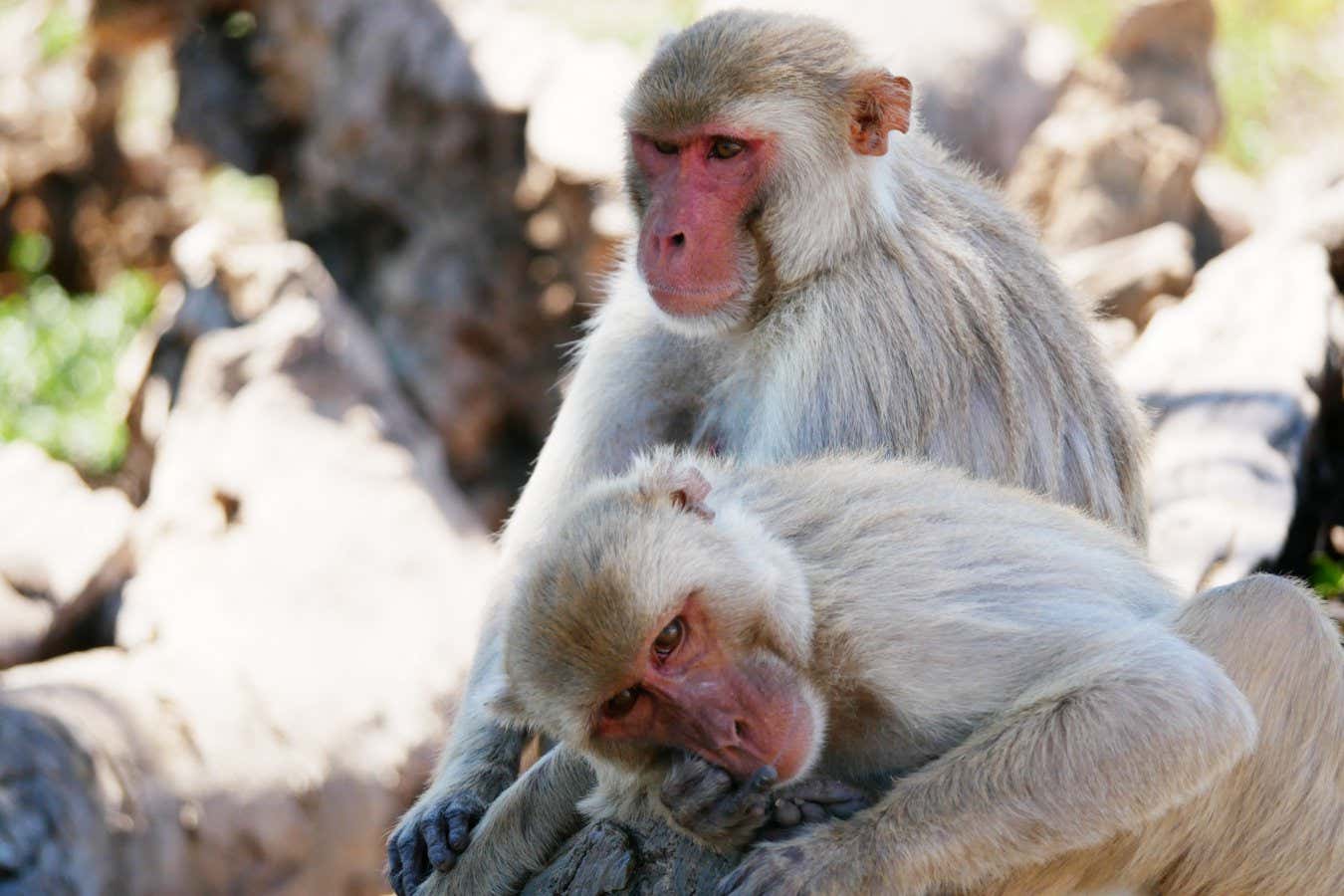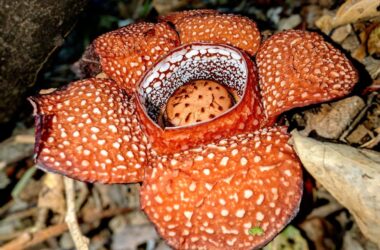Homosexual behavior is common among male macaque monkeys in the wild and may have a genetic component passed down from father to son. This behavior appears to provide evolutionary advantages through the formation of strong male alliances, according to Vincent Savolainen from Imperial College London.
Male macaque monkeys form bonds and assist each other in fights, which potentially gives them access to more females and increases their chances of reproducing.
While occasional same-sex touching has been observed in various animal species, it is generally considered to be rare. Vincent Savolainen challenges the “Darwinian paradox of homosexuality,” which suggests that homosexual behavior has no benefit since it does not lead to reproduction and should be eliminated by natural selection.
To explore homosexuality in primates, Savolainen and his team studied a colony of wild rhesus macaques on the Puerto Rican island of Cayo Santiago. They observed 236 males from two social groups for 7 hours a day over 72 days in 2017, 2019, and 2020.
The research revealed that 72% of the male macaques mounted other males, while only 46% mounted females. The scientists observed sperm plugs, indicative of ejaculation, in the anuses of some males. In 16.5% of same-sex mounting instances, the males fought together against other monkeys before engaging in sexual activity.
The study also found that same-sex mounting became less common as the males aged, supporting the idea that it might serve as practice for future reproductive activity.
The researchers discovered that same-sex mounting had a heritability of 6.4%, suggesting a small genetic influence in addition to other factors. The behavior did not negatively impact reproductive success and, in fact, males engaging in same-sex mounting tended to have slightly more offspring.
Savolainen argues that the males’ mounting activity is not simply a display of dominance, as they would often mount higher-ranking males. He suggests that since the monkeys experience erections, penetration, and even ejaculation, it is sufficient to classify their behavior as sex rather than dominance.
This study challenges the notion that same-sex behavior is unnatural in animal species. Jon Richardson from the University of Minnesota, who was not involved in the study, believes this research helps dispel the outdated idea that homosexuality in animals is an evolutionary paradox or aberration.
Topics:








